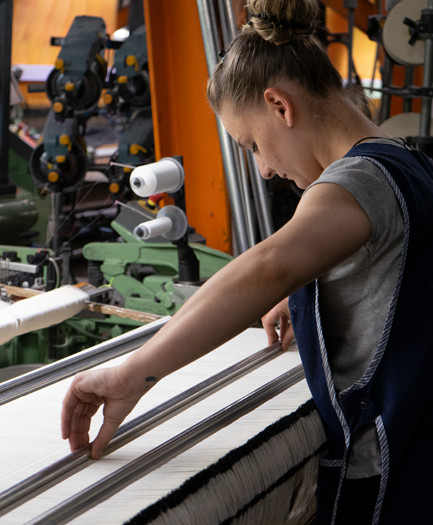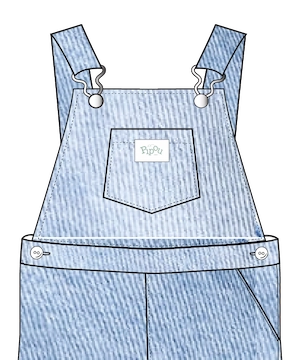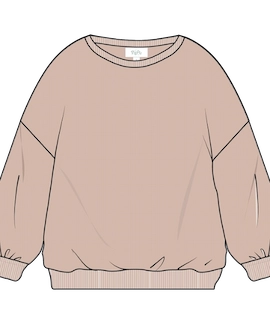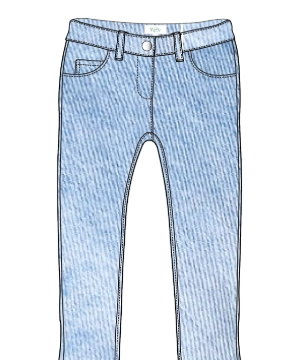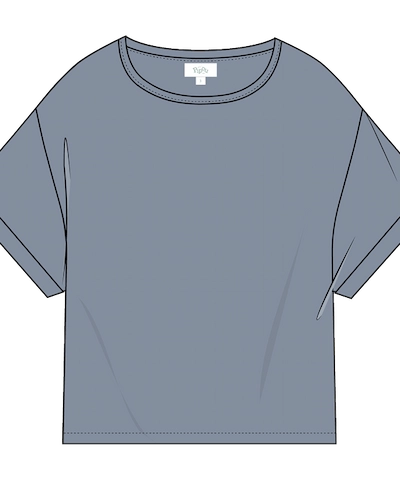I buy fast fashion because I can't afford to dress otherwise
Fast fashion is like those people who change their crush every week: they always want to be one of the cool kids, to be at the forefront of the trend. But the problem is that it often ends up hurting everyone!
We all know that the economic situation is not good and current living conditions are complicated for everyone - especially the most precarious, starting with students.
In these conditions, the temptations to go for fast fashion are great, especially when Shein comes to catch our eye.
Fast fashion is that incredible person on paper that you want to introduce to all your friends and your parents, but who quickly makes you disillusioned when you take the first drink....
Because she has arguments:
> Competitive prices : impossible to compete with a t-shirt for €2 or a dress for €9. At Shein, the average product does not exceed €7!
> Easy to access products : all these products are available online, their hyper-effective marketing makes it difficult to even miss them and the temptation to go see these pretty overalls for €10 arrives very quickly... not to mention their super efficient, fast, worldwide delivery system.
> A range of hyper trendy products allowing anyone to be at the forefront of fashion at a lower cost.
Yeah, you see that, you match directly, I understand...
But I would like to spare you the disappointment of that famous first drink, so I will give you some keys to understanding that fast fashion is toxic, and for everyone.
1. “Fast fashion and ultra fashion are the only ones to offer low-cost products”
Believing that fast fashion and ultra fashion are the only ones to offer low-cost products is like believing that the only thing that exists between McDonald's and gourmet cuisine is a can of food. There are so many other options!
Why limit yourself to only fashion giants when there are more ethical and sustainable alternatives?
Second-hand shopping has grown incredibly in recent years and it has become very easy to dress in second-hand clothes or on second-hand platforms. Websites like Omaj, Videdressing, Vinted or Leboncoin allow anyone to resell their clothes or buy them at very affordable prices.
Finally, start-ups like Faume offer innovative solutions allowing companies to present a catalog of their second-hand products on their own websites.
All you have to do is to be creative and explore the different options to find low-cost products without sacrificing your ethics and your planet.
2. “Yes, I buy fast fashion but I don’t buy a lot of it so it’s not a big deal”
Of course, consuming less is better, I'm not going to tell you the opposite!
But justifying the purchase of fast fashion by the small quantity is a bit like saying "I only smoke one cigarette a day, so it has no impact on my health" 🦦
First of all, consuming fast fashion necessarily forces you to consume more .
Your garment will no longer be wearable within a maximum of 5 washes, quality requires... So ultimately, it is even better to continue to buy little but buy well. Having quality basics that stand the test of time in your wardrobe remains the best solution for your wallet and for the planet!
And then, only seeing the ecological impact of fast fashion is a bit like seeing only the tip of the iceberg...
We must be aware that fast fashion, to offer these competitive prices, necessarily exploits human beings. Children, slaves (the extermination of the Uighur people in particular), women, are the first victims of this industry.
I tend to ask those close to me: “If you had to go to the manufacturing factories to pick up your €2 t-shirt and you saw all this misery with your own eyes, would you buy it? Would you still continue to tell yourself that you have no choice because you don't have many means?". I don't think so, well I don't hope, poverty is always more acceptable when it is far from us.
But let's not close our eyes...
So, rather than looking for excuses to continue buying fast fashion, why not explore more sustainable and ethical alternatives? We talked about it just before, you can buy second-hand but you can also opt for ethical and sustainable brands, or even organize a clothing exchange with your friends. There are so many options to reduce your impact on the environment and others while having a great wardrobe and preserving your wallet in the long term.
3. “I don’t buy made in France clothes because it’s too expensive”
I understand that price can be an important consideration for many people when purchasing products. However, it is important to understand that made in France is the guarantee of clothing that lasts over time and which resists life thanks to the know-how of our French workshops.
Finally, from the point of view of your wallet, it is better to buy one t-shirt per year that you will keep for 5 years rather than one t-shirt every 2 months because it becomes unwearable. In the end, you will have more choice in your wardrobe, you will have spent as much (or less) and you will have consumed ethically.
Furthermore, if we want the prices of made in France to drop, then we must support it! It is by making our workshops work harder, by developing new manufacturing plants in our territory that we will be able to lower production costs and restore wealth to our country.
And like that, “the wheel of fortune turns”!
4. “Thanks to fast fashion, unlike second hand, I am fashionable”
If you think that, I think you haven't looked much, because second hand can be an incredibly cool option to be fashionable while making a more respectful choice for the environment and others. You can find vintage and unique pieces that will give you a truly original and stylish look. And what's more, you can be proud to do something positive for the planet.
And then, saying that fast fashion allows you to be fashionable really amounts to burying your head in the sand and denying the fact that these brands manage to copy their competitors' trendy pieces in less than 48 hours. In other words, it's theft... so being fashionable but “at what cost”?
5. “Easy to criticize when you have a phone, a computer, a car, etc. manufactured on the other side of the planet and under what conditions?”
I see what you mean and I completely agree with it and there is still a long way to go. Of course we can't be perfect in every area and that's not what we're asking for...
But hey, I don't think we should be discouraged .
There are more and more ecological solutions in many areas and others are further behind, we do what we can! However, solutions like Backmarket or Fairphone make it possible to purchase electronic goods more ethically, assistance exists to buy electric bikes or cars for those who have more means, etc.
The important thing here is that we must not justify one problem by pointing the finger at another. We can start by informing ourselves about the working and production conditions of the companies we support with our purchases .
And regarding fashion, today there are plenty of easy-to-access solutions for everyone to consume responsibly, so let's do it!
The subject is delicate and the economic situation makes the dialogue complicated, but if we could all take a few minutes to think and try to understand the impact of our consumption on the planet but also on other human beings, that would already be a good start ... 💙



